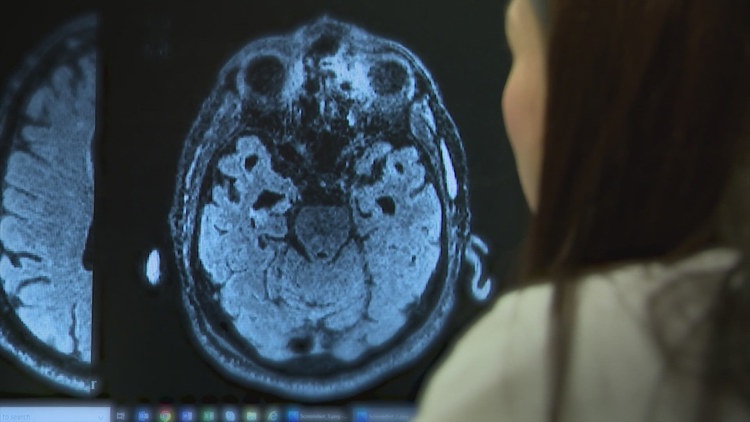Science
Texas Voters Face Historic Decision on $3 Billion Dementia Fund

A significant decision is looming for Texas voters as they prepare to cast their ballots on Proposition 14 in the upcoming election on November 5, 2024. If approved, this initiative will allocate $3 billion towards dementia research, a move that could revolutionize the state’s approach to Alzheimer’s disease and related conditions. The funding aims to accelerate breakthroughs in treatment and prevention, positioning Texas as a leader in addressing this growing public health challenge.
The proposal has garnered support from various health organizations, researchers, and advocates who argue that the investment is vital in combating an issue that affects millions of families. According to the Alzheimer’s Association, over 400,000 Texans currently live with Alzheimer’s disease, a number that is projected to rise significantly in the coming years. Proponents believe that robust funding will not only enhance research efforts but also stimulate innovation in local laboratories, potentially leading to groundbreaking discoveries in the field of dementia care.
Potential Impact on Research and Innovation
The funds from Proposition 14 are intended for use in state-funded research institutions, such as the University of Texas and Texas A&M University. These institutions are poised to leverage the investment to explore new therapeutic avenues, enhance diagnostic tools, and improve patient care strategies. The hope is that this financial commitment will attract top-tier researchers and foster collaborations that could transform the landscape of dementia research.
Dr. Sarah Thompson, a leading researcher in Alzheimer’s studies at the University of Texas, emphasized the importance of this funding. “With $3 billion dedicated to research, we can explore innovative treatments that may have been previously sidelined due to funding constraints. This is a critical step forward for Texas and for the millions affected by dementia,” she stated.
Moreover, the economic implications of the proposition extend beyond healthcare. The investment is expected to create jobs within the research sector and related industries, contributing to the overall growth of Texas’s economy. By fostering a robust research environment, the state can position itself as a hub for medical innovation, attracting both talent and investment.
Challenges Ahead
Despite the optimism surrounding Proposition 14, opposition exists. Critics argue that the state should prioritize existing healthcare needs and question the effectiveness of investing such a substantial amount in research. They express concerns about the allocation of resources and the potential for bureaucracy that could hinder swift action in addressing pressing health issues.
Additionally, there are questions about how the funds will be distributed and monitored. Ensuring transparency and accountability will be critical to maintaining public trust and support for such a large-scale investment. Advocates are urging voters to focus on the long-term benefits of the initiative, emphasizing that a proactive approach to dementia care can alleviate the burden on families and the healthcare system.
As the election approaches, the outcome of Proposition 14 will not only reflect the priorities of Texas voters but also set a precedent for how states address the growing challenges posed by dementia. With the potential for substantial advancements in research and treatment, the stakes are high for those advocating for the future of dementia care in Texas.
The decision made at the ballot box on November 5, 2024, could mark a pivotal moment in the fight against Alzheimer’s disease and reshape the future of medical research in the state.
-

 World2 weeks ago
World2 weeks agoGlobal Air Forces Ranked by Annual Defense Budgets in 2025
-

 World2 weeks ago
World2 weeks agoMass Production of F-35 Fighter Jet Drives Down Costs
-

 Top Stories2 weeks ago
Top Stories2 weeks agoNew ‘Star Trek: Voyager’ Game Demo Released, Players Test Limits
-

 Top Stories2 weeks ago
Top Stories2 weeks agoDirecTV to Launch AI-Driven Ads with User Likenesses in 2026
-

 Science2 weeks ago
Science2 weeks agoTime Crystals Revolutionize Quantum Computing Potential
-

 World2 weeks ago
World2 weeks agoElectrification Challenges Demand Advanced Multiphysics Modeling
-

 Lifestyle2 weeks ago
Lifestyle2 weeks agoLia Thomas Honored with ‘Voice of Inspiration’ Award at Dodgers Event
-

 Entertainment2 weeks ago
Entertainment2 weeks agoFreeport Art Gallery Transforms Waste into Creative Masterpieces
-

 Lifestyle2 weeks ago
Lifestyle2 weeks agoDiscover Reese Witherspoon’s Chic Dining Room Style for Under $25
-

 Health2 weeks ago
Health2 weeks agoGavin Newsom Critiques Trump’s Health and National Guard Plans
-

 Entertainment2 weeks ago
Entertainment2 weeks agoFast & Furious Coaster Hits the Track at Universal Studios
-

 Science2 weeks ago
Science2 weeks agoWaning Crescent Moon: What to Expect on October 17








